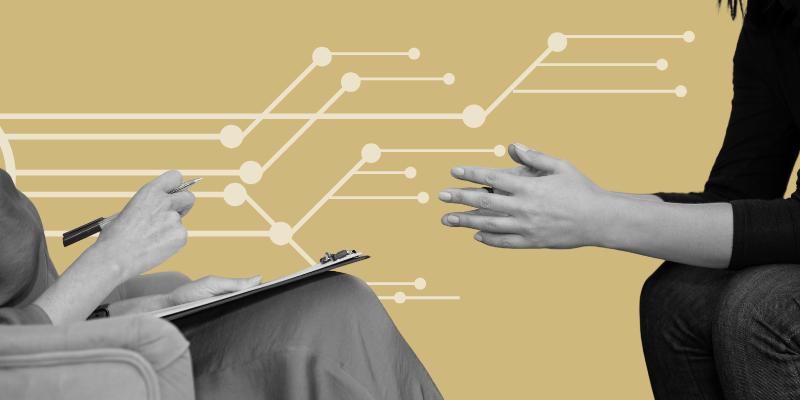Following the U.S. Supreme Court’s 2022 ruling in Dobbs v. Jackson Women’s Health Organization, which held that the U.S. Constitution does not confer the right to an abortion, health care providers across the United States immediately began adapting to a continually shifting health care landscape.
In that landscape, as providers navigate uncertainty about allowable practices and, for some, fear of prosecution, the potential for moral injury may be heightened.
In a recently published commentary, Lauren Borges, PhD, and Alisha Desai, PhD, both assistant professors of psychiatry in the University of Colorado School of Medicine, detail how health care workers may be at increased risk for moral injury – or difficulty functioning following a strong emotional and cognitive response to violations of one’s moral or ethical code – which evidence has shown can be a factor in poor mental health outcomes including burnout, depression, suicidal ideation and behavior, substance use disorder, and anxiety.
“In previous research, we looked longitudinally at health care workers’ exposure to potentially morally injurious events and how those events affected them psychosocially over time,” Borges explains. “We found that those providers who experienced events that violated their moral code reported functioning much more poorly.
“In the context of the Dobbs decision, we began thinking about what it would be like to be a health care worker whose entire training supported the reproductive rights of women, now being told they can’t do something they feel professionally and ethically obligated to do.”
Potential for ethical dilemmas
Borges began studying moral injury while working with warzone veterans, and currently has several grants to develop interventions for moral injury. When the COVID-19 pandemic hit, she and several research colleagues began a longitudinal study of potentially morally injurious events on COVID-19-related psychosocial functioning among health care providers.
Desai’s background in forensic psychology motivated her research interest in policies affecting health care at a national level and their trickle-down effects. In the early days of the pandemic, she and several colleagues explored recommendations to responsively adapt criminal justice practices and clinical training to COVID-19-related challenges.
They began developing the commentary after the Dobbs decision with an understanding of the potential for moral injury that health care providers had been working with for several years due to the COVID-19 pandemic.
Since the Dobbs ruling, “the potential for ethical dilemmas, violations of professional principles (e.g., nonmaleficence, patient autonomy), and dissonance with prior clinical decision-making authority can create circumstances for exposure to potentially morally injurious events among health care professionals, which can lead to the development of moral injury,” Desai and Borges wrote.
Dealing with uncertainties
As they began researching the topic, Desai and Borges collaborated with attorneys, physicians, reproductive rights specialists, and other health care providers to better understand not only the legal landscape following the Dobbs decision, but potential impacts on providing reproductive health care.
“Confusion was one of the biggest pieces of what we were learning,” Desai explains. “Providers knew there were limitations, but many were unclear on what they were able to do and not do. So many trigger laws went into effect immediately after the Dobbs ruling that there were, and continue to be, a lot of unknowns.”
Borges adds that the confusion and uncertainty health care providers reported feeling dovetailed with similar experiences stemming from the COVID-19 pandemic. “If we look back between January to March 2020, health care providers expressed having no clue what was going on,” Borges says. “The health care field was burdened even before COVID, so by the time the Dobbs decision was made, a lot of what COVID had brought to the surface was exacerbated. There was confusion and burnout and really burdened cognitive load, and who has the time to sort through all of that and figure it out? People’s licenses were on the line.”
They note that health care professionals may be more likely to violate their morals under threat of criminal and civil prosecution. Further, though they are responsible for knowing the laws governing where they work, they may not be as familiar with legal nuances arising from issues related to the Dobbs decision.
“I think where we really get into the weeds is the legal piece,” Desai says. “A provider in Colorado, where reproductive health care has certain protections, may feel a lot of uncertainty when a border state is saying they’ll prosecute providers who treat residents of that state.”
Adapting policy to support providers
In these circumstances, health care providers may be at increased risk for moral injury and distress, as well as related mental health outcomes, including anxiety, depression, suicidal ideation and behavior, and substance use disorder. Desai and Borges note that “health care systems may benefit from advanced preparation to identify potentially morally injurious events and moral distress and to address moral injury among employees who provide reproductive health care services.”
While the potential for moral injury and distress can be addressed at individual, team, and facility levels, “there’s a lot that can be done at an institutional level and within health care systems that can benefit the culture of health care,” Borges says. “If you’re working in a system where it feels like patients are numbers and you don’t feel able to offer care in a way that you want to support patients, you’re not going to feel great about the care you’re providing.
“We focus so much on individual provider wellness and mindfulness and building those skills, which is important but it also in a way puts all the responsibility on them. We need to be creating policy that supports providers in this post-Dobbs environment.”





